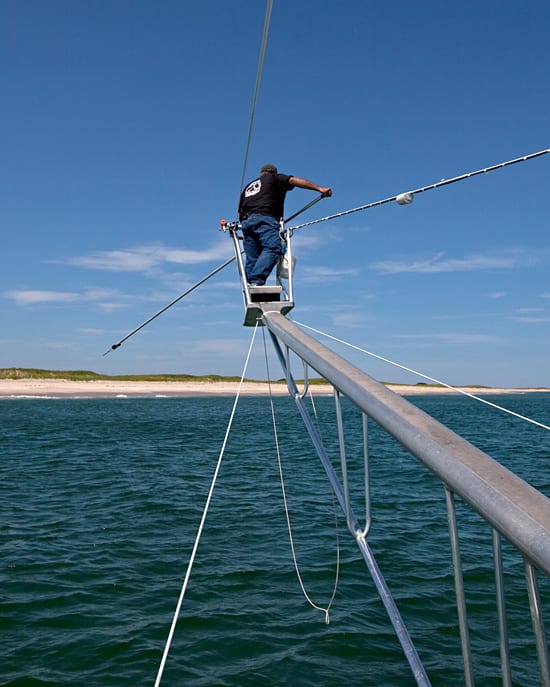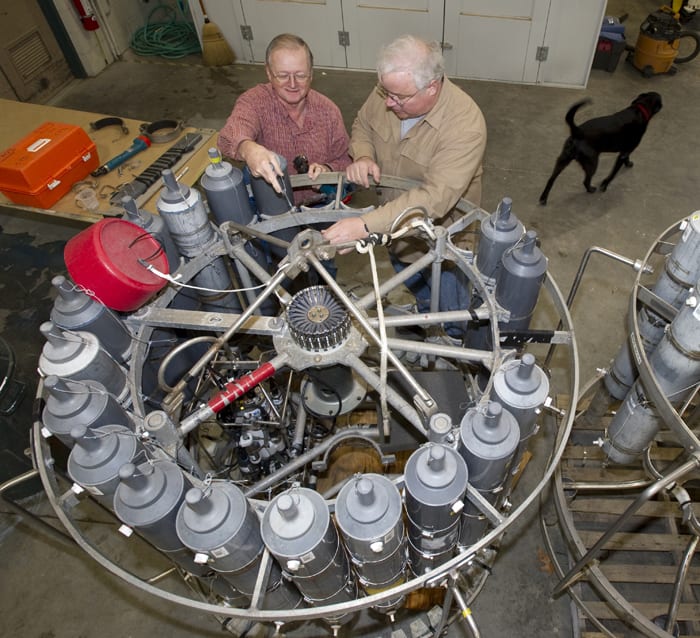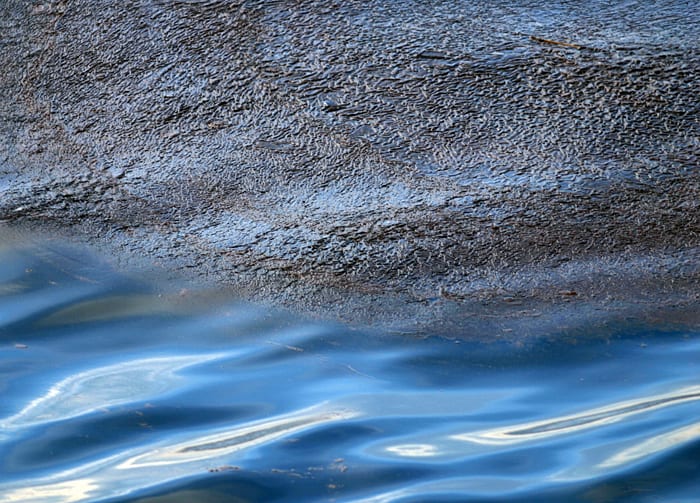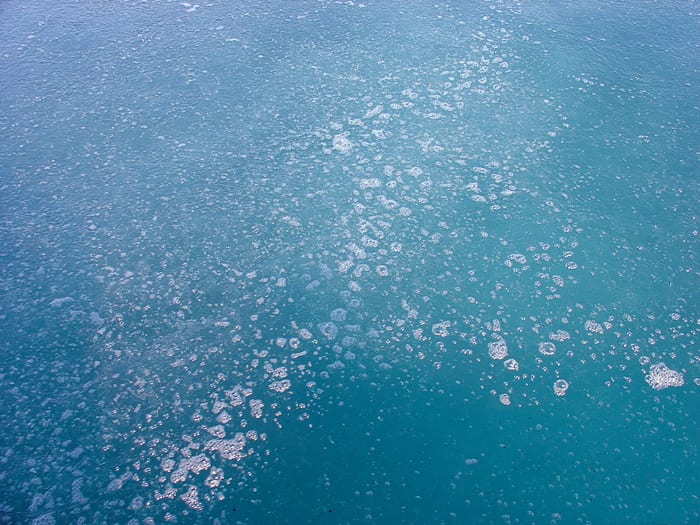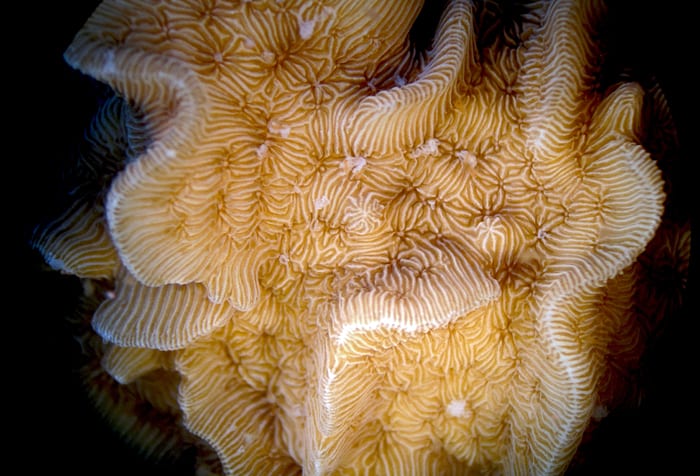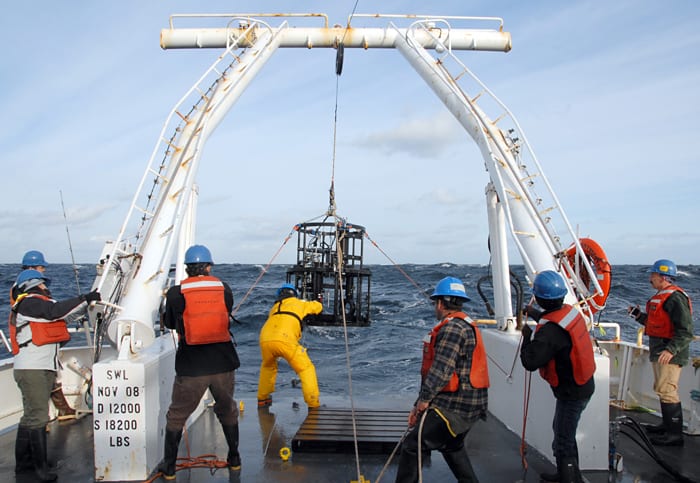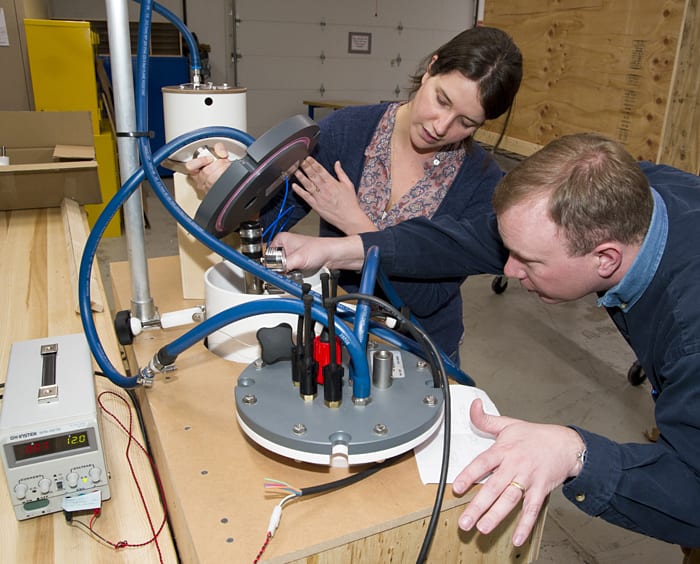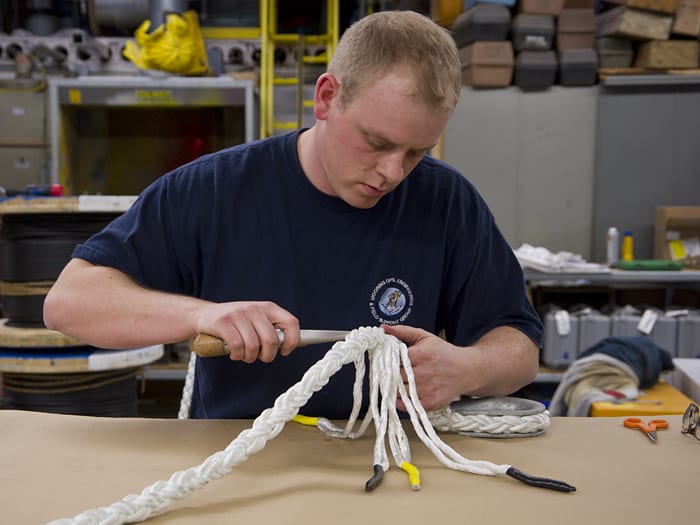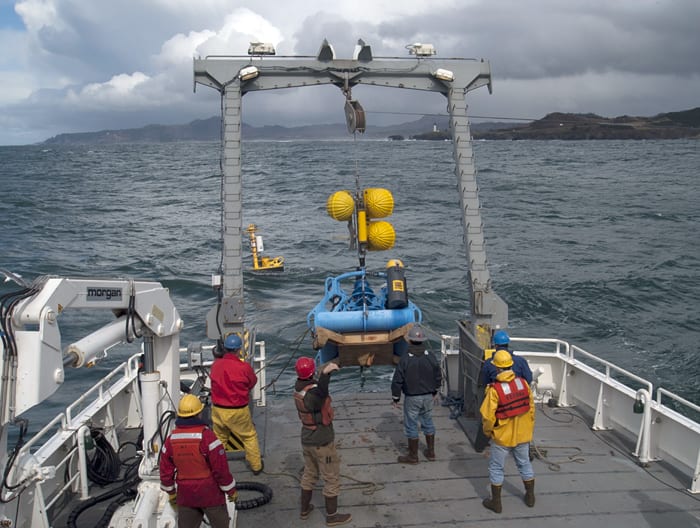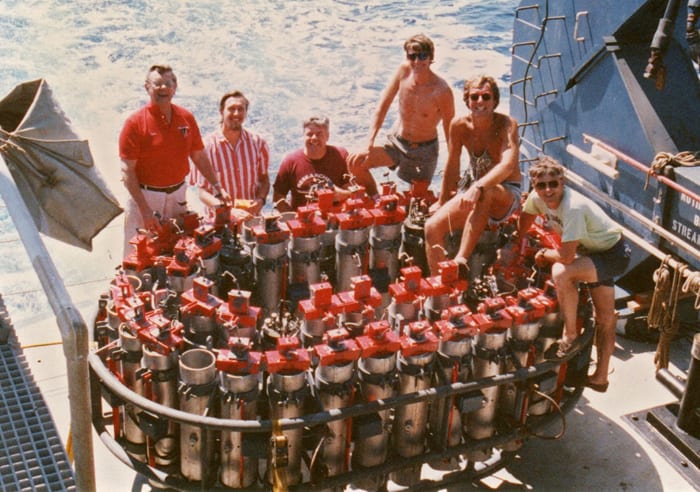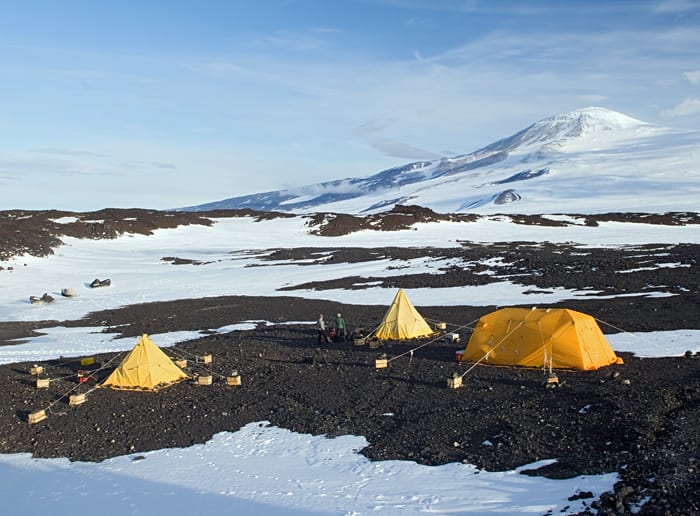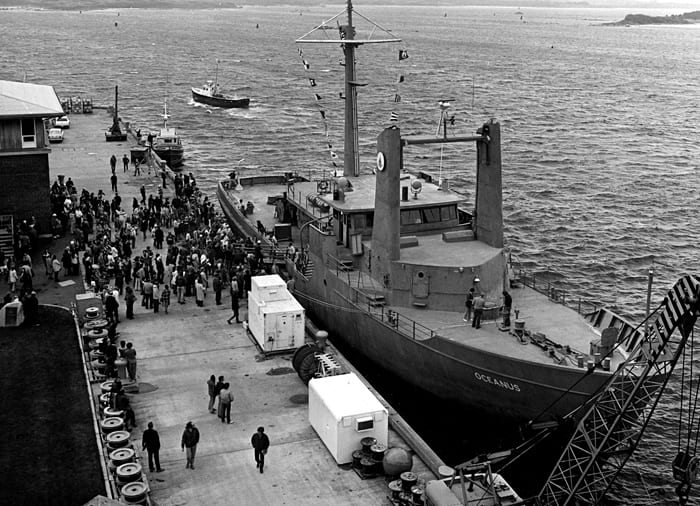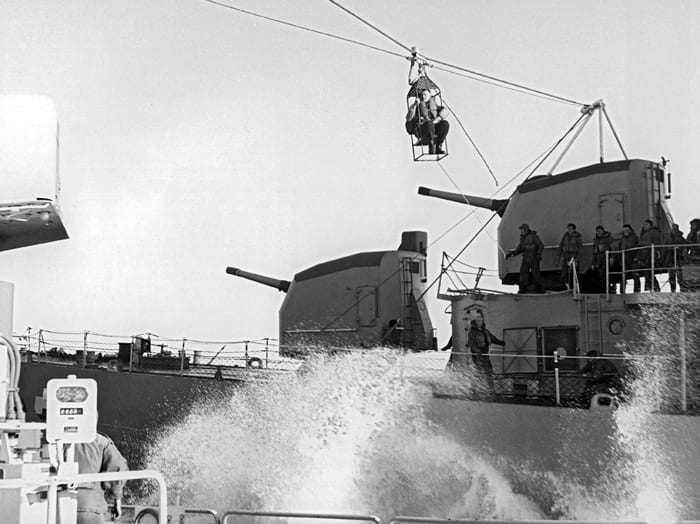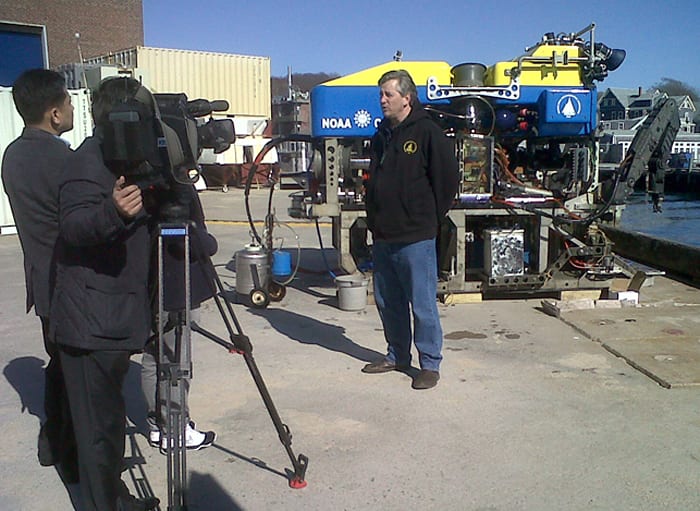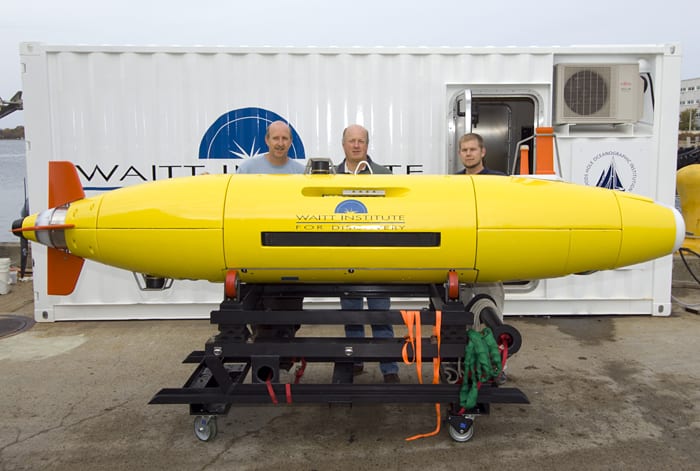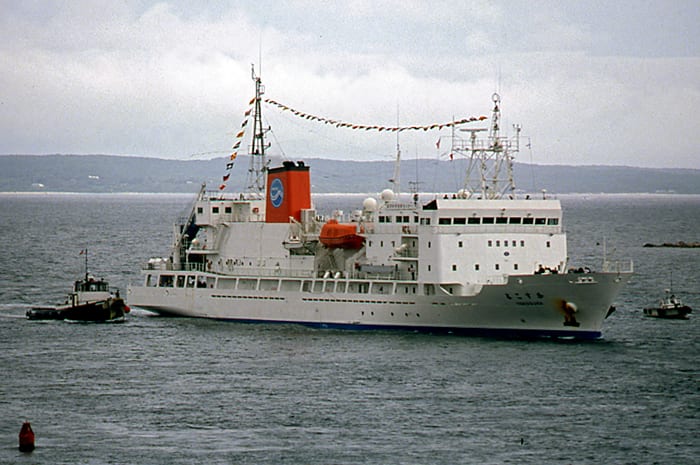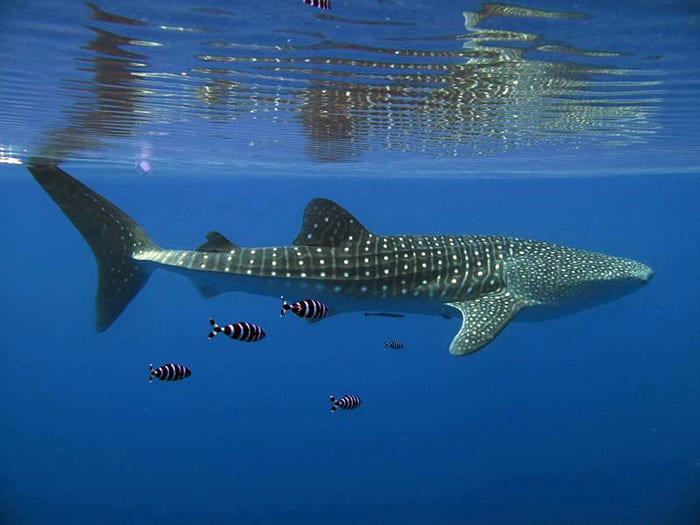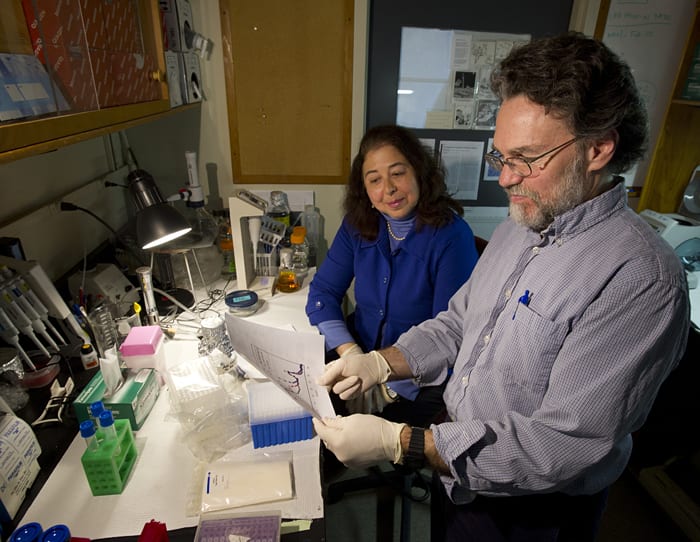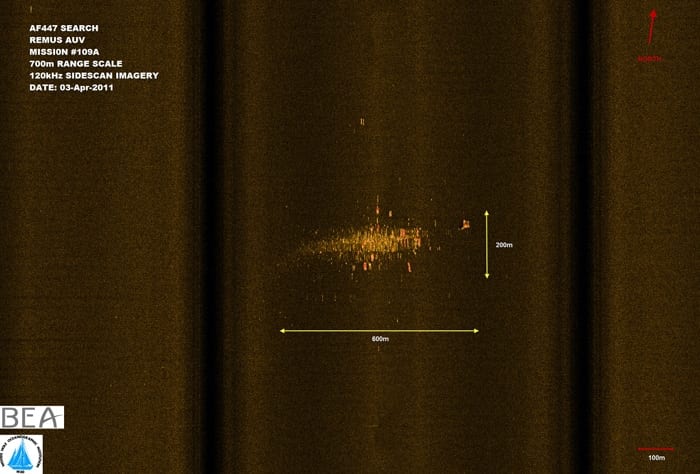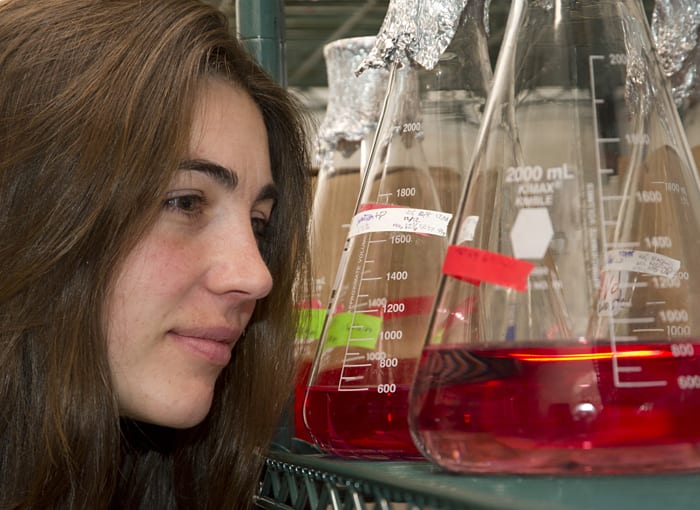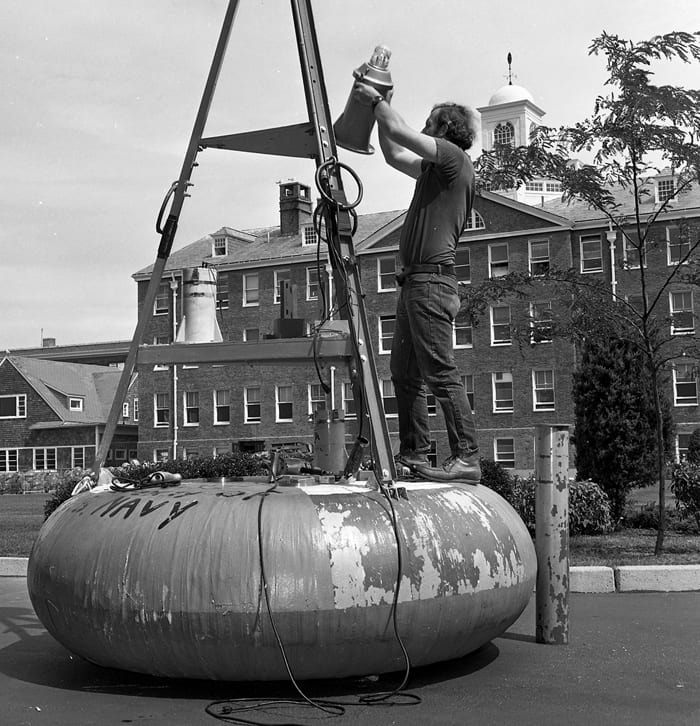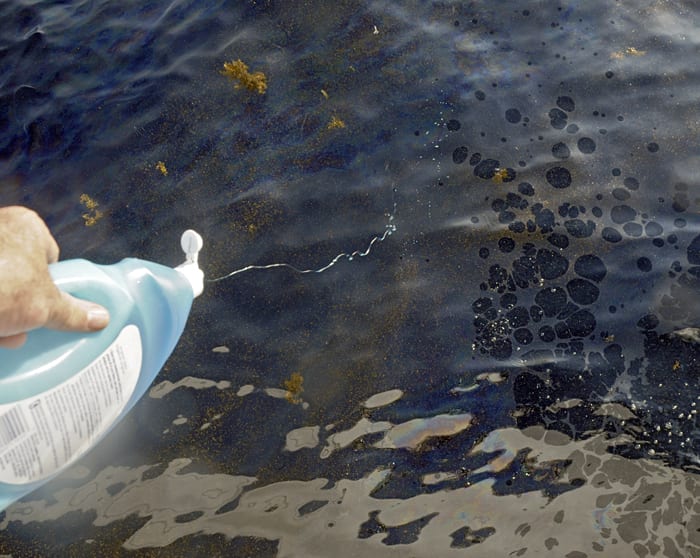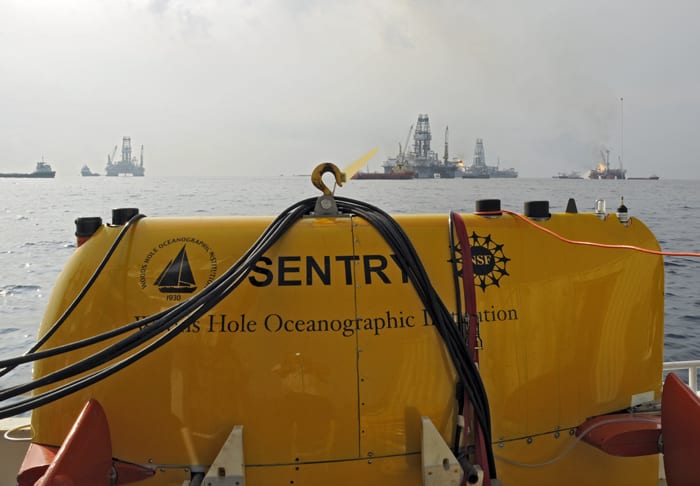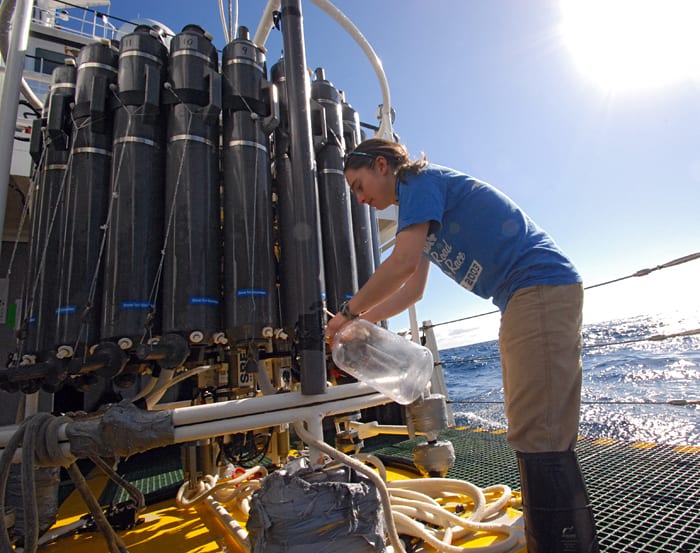Multimedia Items
Patience in the Pulpit
Captain Bill Chaprales of Cape Cod Shark Hunters prepares to tag a white shark off Chatham, Mass., in 2010. Captain Chaprales has worked with biologists Simon Thorrold, director of WHOI’s…
Read MoreIngenuity and Innovation
Research associates George Tupper (left) and Marshall Swartz check a CTD rosette, which measures the salinity and temperature of seawater at various depths, as Swartz’s dog Little Bear takes a…
Read MorePortrait of a Spill
This photo of oil and water in the Gulf of Mexico, taken in June 2010, recalls the historic spill that spread millions of gallons of oil in the three months…
Read MoreSanta Barbara Oil Seeps
There’s an oil spill every day off the coast of Santa Barbara, Calif., where oil is seeping naturally from cracks in the seafloor into the ocean. Lighter than seawater, the…
Read MoreFolds Within Folds
What seems like a fractal landscape of mountains and canyons is actually a “corrugated coral,” a reef-building species with a hard skeleton, photographed under a microscope. Pockets of tiny white…
Read MoreNot Always Smooth Sailing
Georges Bank near Cape Cod is well known for it’s fish and its rough seas. In 2010 biologists Peter Wiebe and Gareth Lawson took a research team to Georges Bank…
Read MoreAll Systems Go
WHOI engineers Kate McMonagle and John Lund work on an instrument that measures the concentration of carbon dioxide in both the air and the surface water. It is one of…
Read MoreNice Splice
Engineering assistant Christopher Ross splices a “hardeye” (galvanized thimble) into 7/8-inch, 8-strand nylon line in the WHOI rigging shop. After positioning the hardeye, he spliced the rope back into itself–about…
Read MoreEndurance Testing
Workers from WHOI and Oregon State University deploy a Multi-Function Node (MFN) from the fantail of the R/V Wecoma near Newport, Oregon, in March 2011. After entering the water, the…
Read MoreA High-Impact Career
Don Koelsch (far left) and other WHOI engineers and seismologists with the Near Ocean Bottom Explosives Launcher (NOBEL) system on the fantail of R/V Atlantis II in 1991. Koelsch helped…
Read MoreMidnight camp
Sunny yellow tents on stark lava and snow mark a temporary home for a WHOI research team in Antarctica to study the weathering of ancient lava flows from a long-dormant…
Read MoreOceanus, the Early Days
Brand new and not yet painted, R/V Oceanus arrived at WHOI on November 21, 1975 to cheers and celebration. Funded by the National Science Foundation, the 177-foot ship took its…
Read MoreAll Hands for the Thresher
On April 10, 1963, the U.S. nuclear attack submarine USS Thresher was conducting deep-diving trials about 220 miles east of Cape Cod when communication with the sub was suddenly cut…
Read MoreLights, Camera, Action
Tito Collasius, expedition leader with the remotely operated vehicle (ROV) Jason filmed an interview recently with a crew from the Korean Broadcasting System for a documentary about deep-sea exploration. Jason…
Read MoreAUVs Assist in Search
Members of the REMUS Operations Group Steve Murphy, Mark Dennett, and Robin Littlefield (left to right), pose with one of the REMUS 6000 autonomous underwater vehicles (AUVs) built in 2008…
Read MoreWhen Colleagues Came Calling
Bedecked with pennants, the 105-meter R/V Yokosuka carrying the Shinkai 6500 submersible, operated by the Japan Agency for Marine-Earth Science and Technology (JAMSTEC), visited WHOI in 1994 after a joint…
Read MoreA Sight to Behold
WHOI Senior scientist and Director of the Ocean Life Institute Simon Thorrold is tagging whale sharks in the Red Sea with the support of King Abdullah University of Science and…
Read MoreMaking the Best of a Hostile Environment
WHOI’s Diana Franks and Mark Hahn, shown working in the lab, joined colleagues from New York University and NOAA to report that Atlantic tomcod living in New York’s Hudson River…
Read MoreSearch for Air France Flight 447
In the Pink
Alyson Santoro, a WHOI postdoctoral investigator in the department of Marine Chemistry and Geochemistry, checks on cultures of marine ammonia-oxidizing bacteria. The bacteria are used by Santoro and Joint Program student Carly Buchwald in…
Read MoreA Good Old Buoy
A member of the WHOI Buoy Group mounts a flashing light on a toroid, or donut-shaped, buoy prior to its deployment in the mid-1960s. The buoy was used to suspend…
Read MoreOil and Water
After an oil spill, oil in the water can interfere with instruments scientists use to study the spill and its aftermath. WHOI scientists working in the Gulf of Mexico after…
Read MoreOn-Call in the Gulf
In June 2010 WHOI investigators aboard the R/V Endeavor used the autonomous underwater vehicle (AUV) Sentry to map a large, underwater hydrocarbon plume in the Gulf of Mexico arising from…
Read More(Re)-Examining Lipids
WHOI’s Laura Sofen assists with water sampling during a recent cruise to the North Atlantic led by Associate Scientist Benjamin Van Mooy. The cruise focused on examining the role of…
Read More
